Barristers in England and Wales are specialist advocates and advisers who provide expert legal services when representing their lay and professional clients in courts and other legal contexts.
Barristers are entitled to hold a Practising Certificate upon their successful completion of pupillage. This is renewed annually and grants them the right to practise as barristers. All barristers with Practising Certificates may work as self-employed barristers, employed barristers or as dual practitioners. The majority are self-employed.
The following charts represent a snapshot of practising barristers as of 1 December in the years presented, except for the chart on all called to the Bar during the year.
All practising barristers
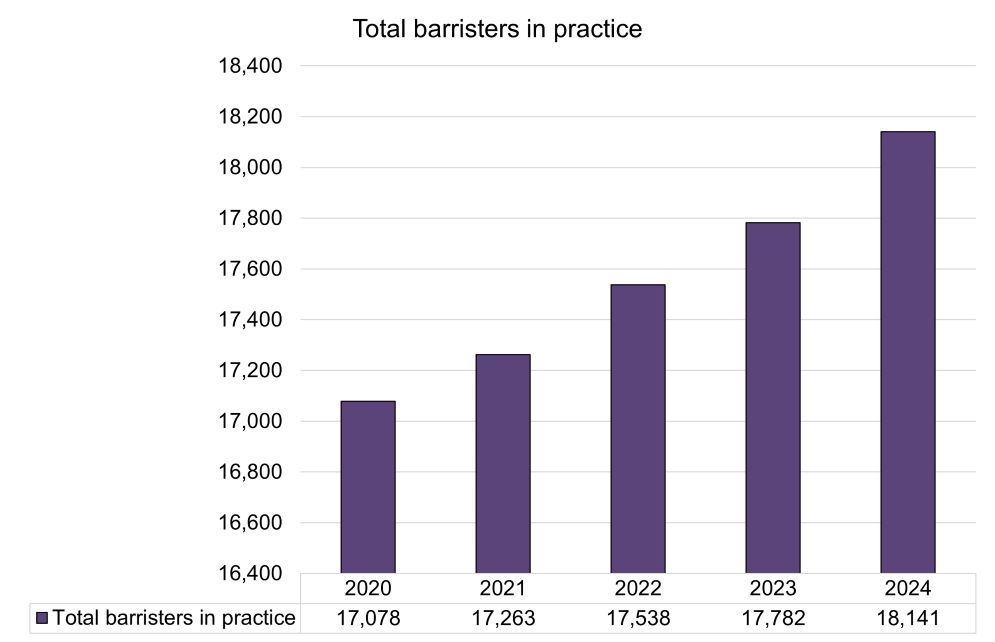

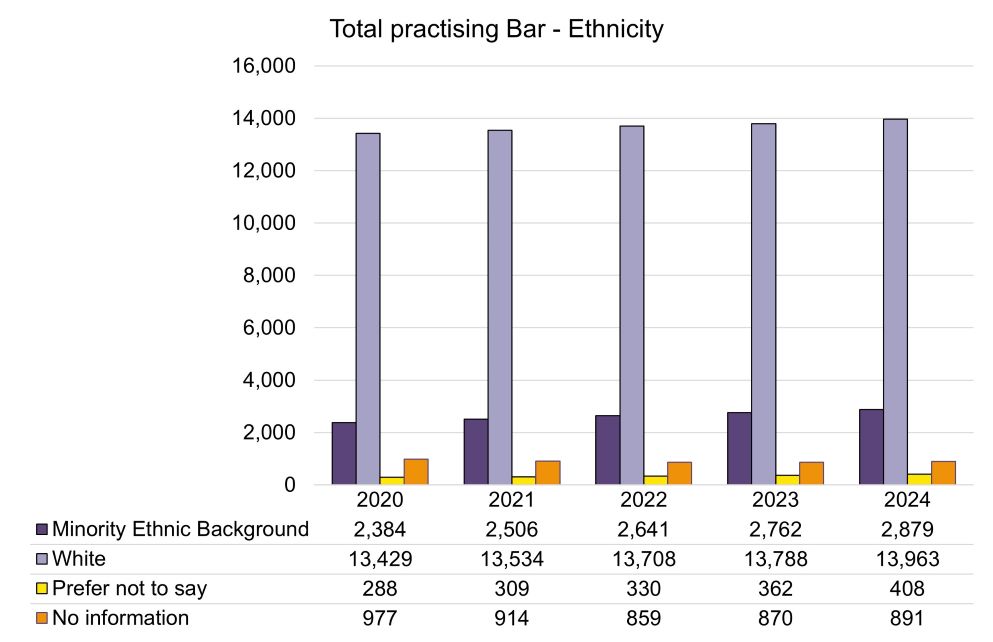
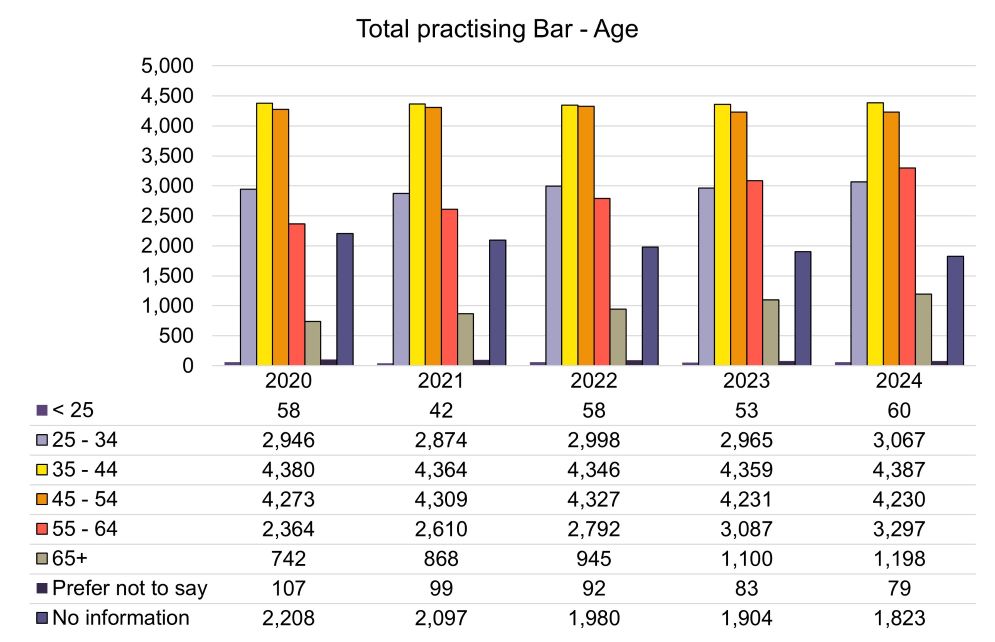
Self-employed practitioners
Self-employed barristers work in chambers (which employ administrative and management staff funded by members' "rent") or work alone as sole practitioners.
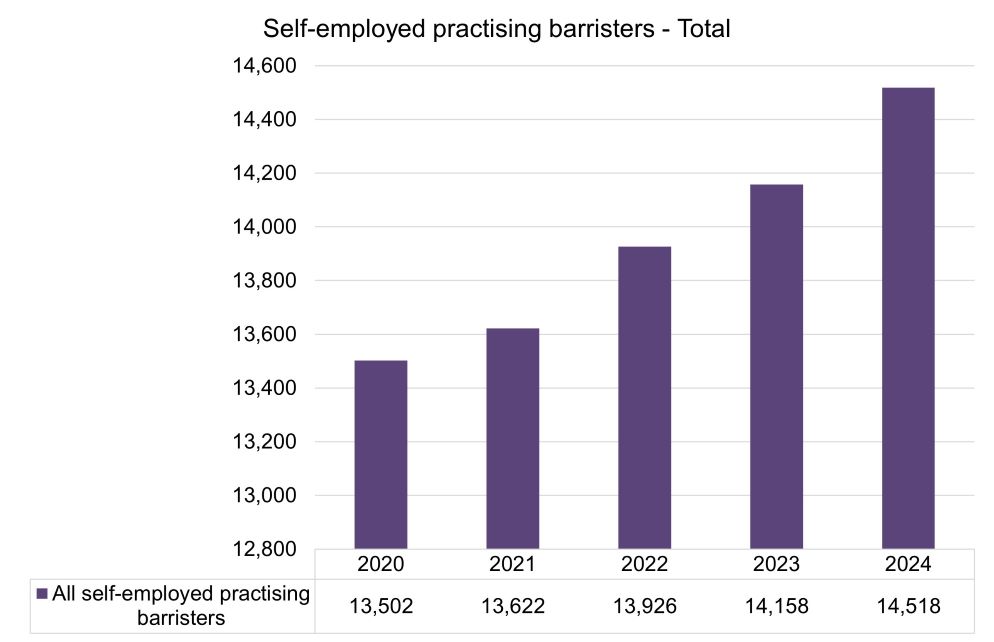
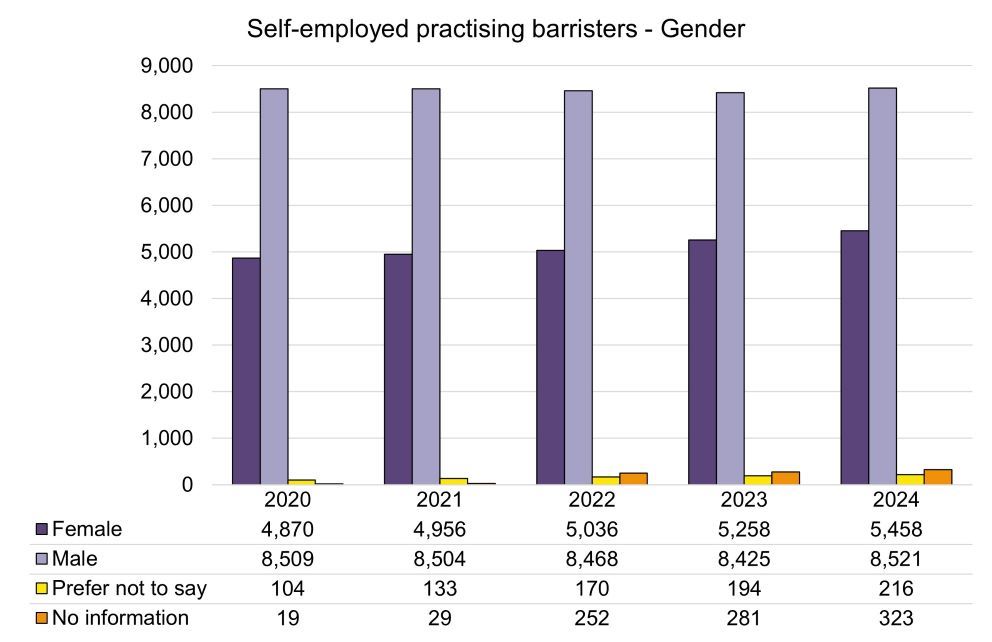
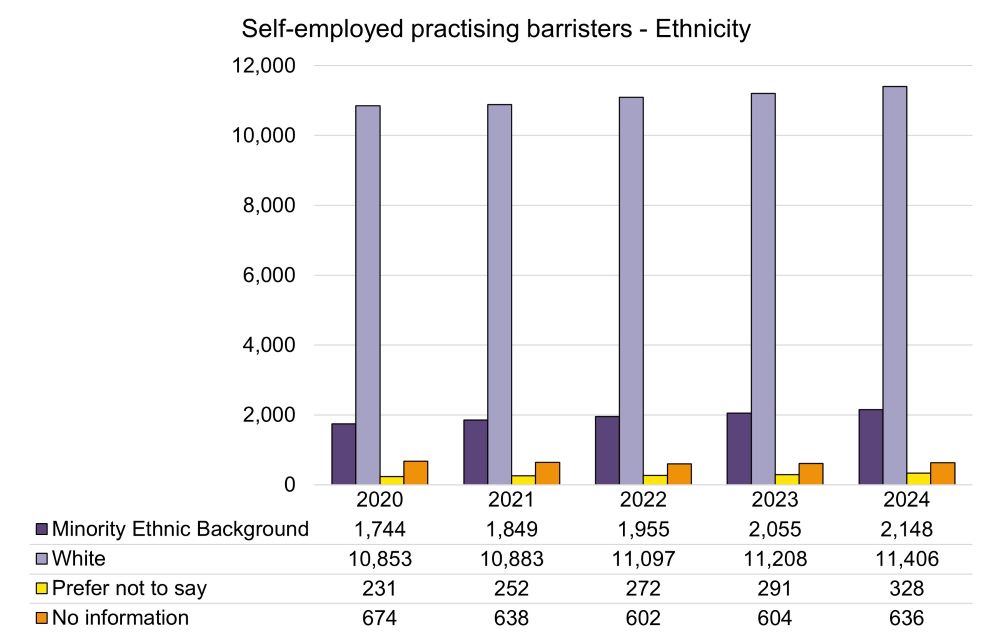
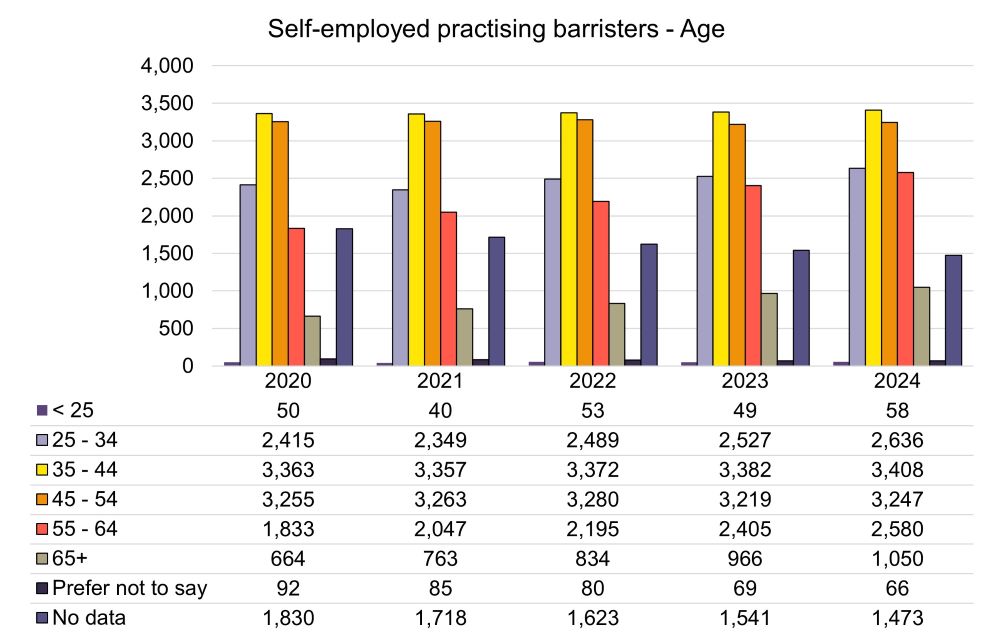
Sole practitioners
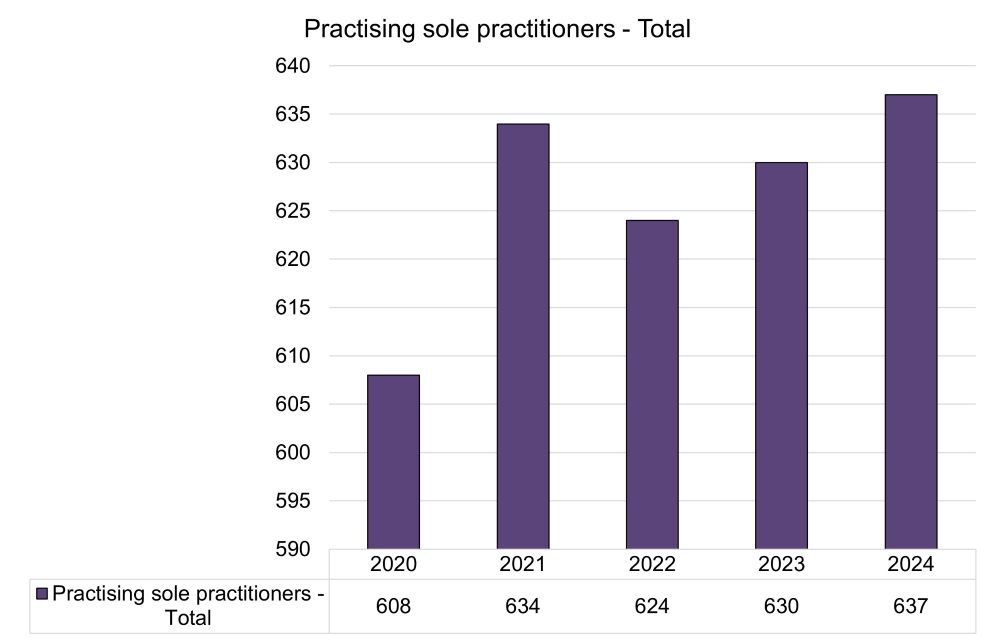
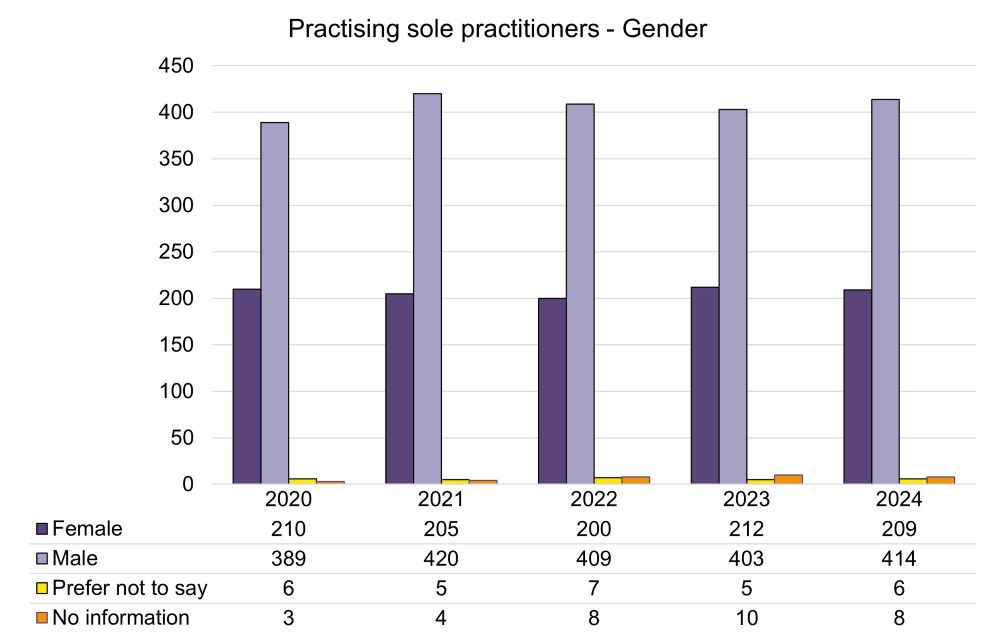
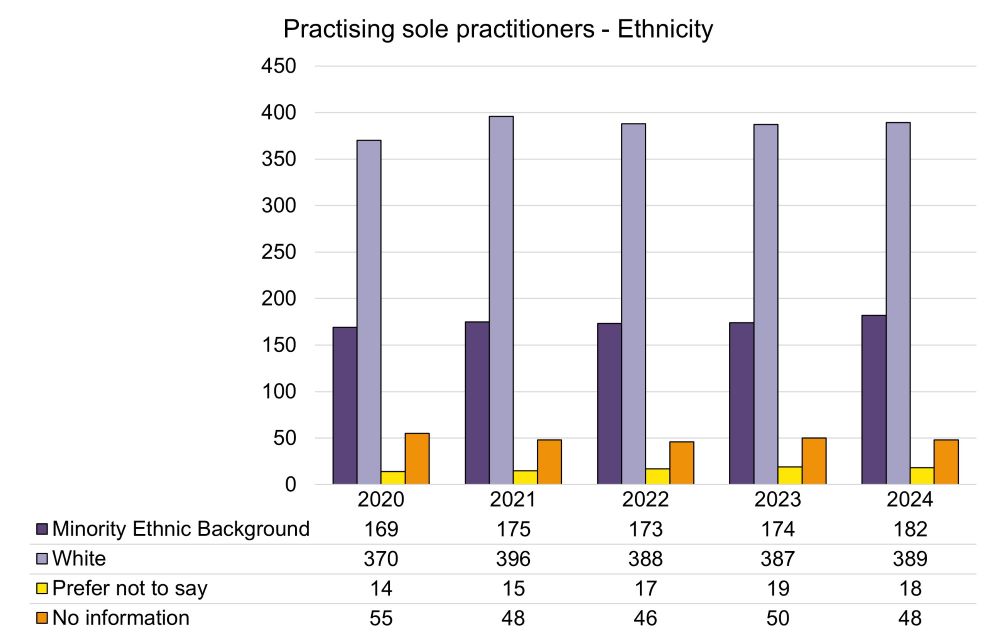
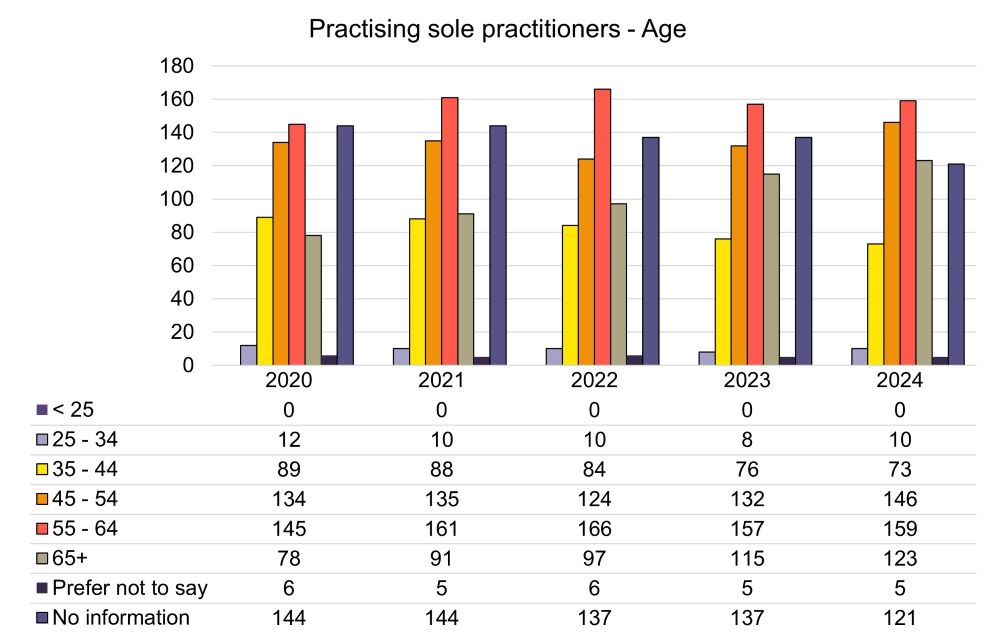
Dual capacity practitioners
Barristers who practise in a dual capacity undertake employed and self-employed work.
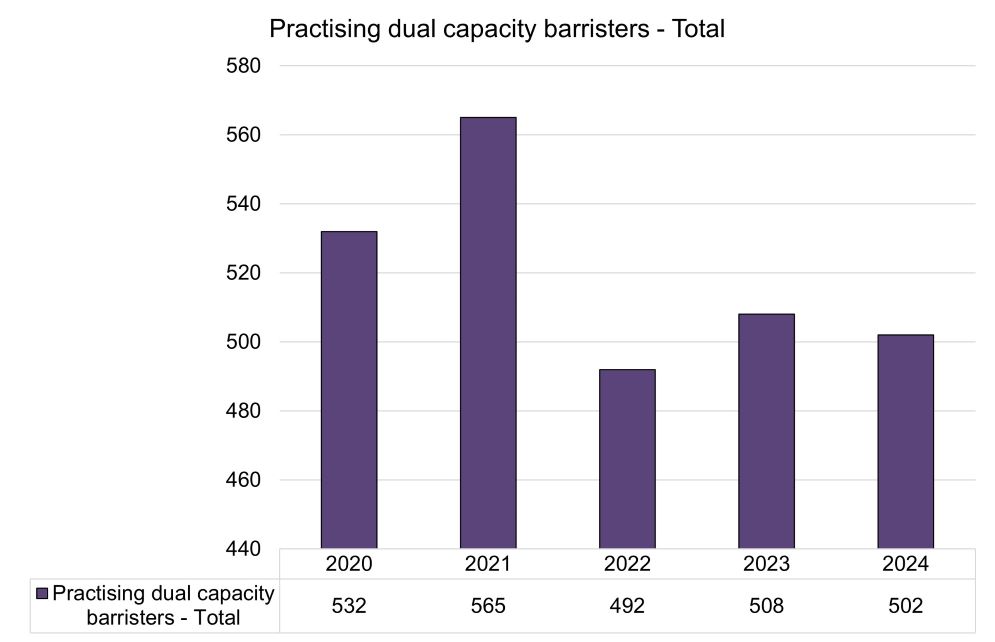
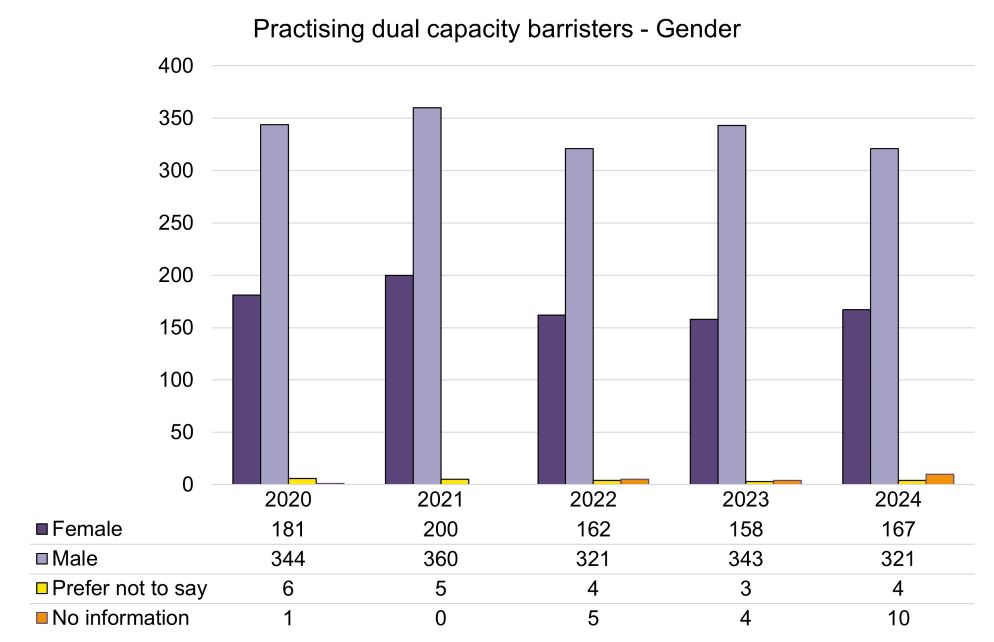
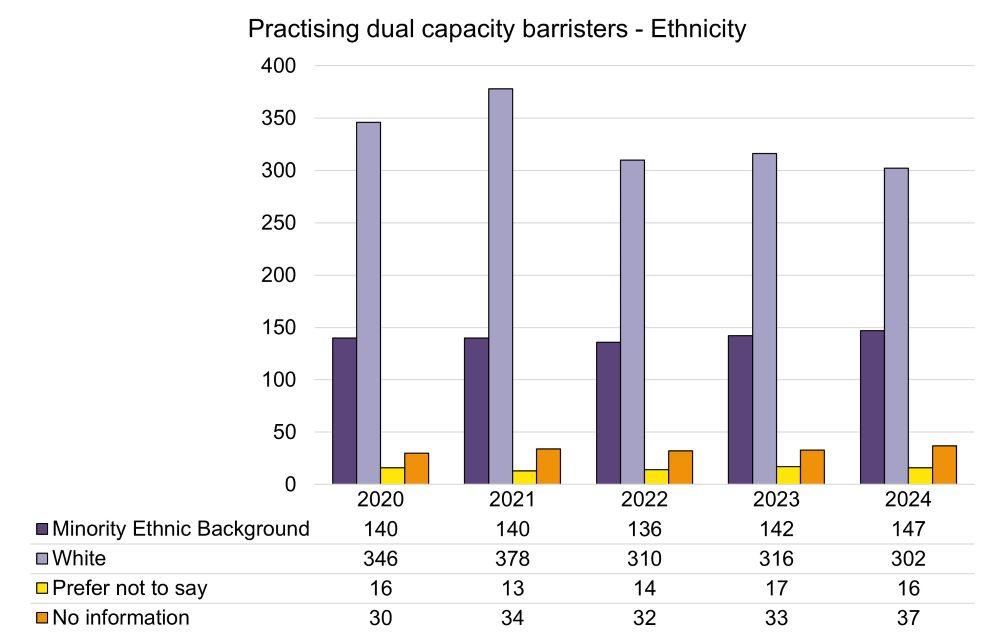
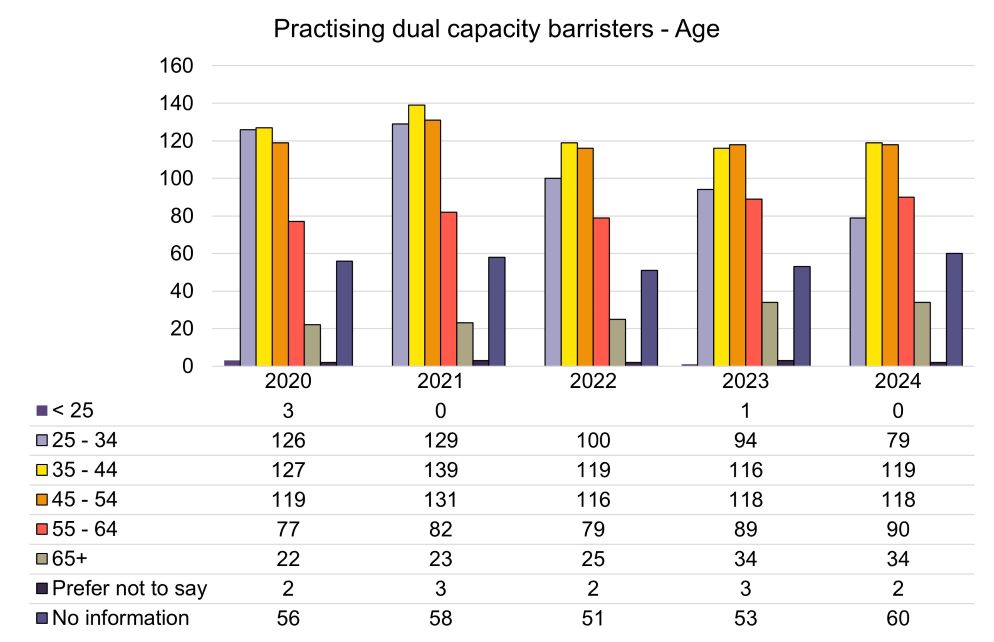
Employed practitioners
Employed barristers are practising barristers who work either under a contract of employment, or under a written contract for services which is for a determinate period, or by virtue of an office under the Crown (such as the Crown Prosecution Service) or in the institutions of the European Union.
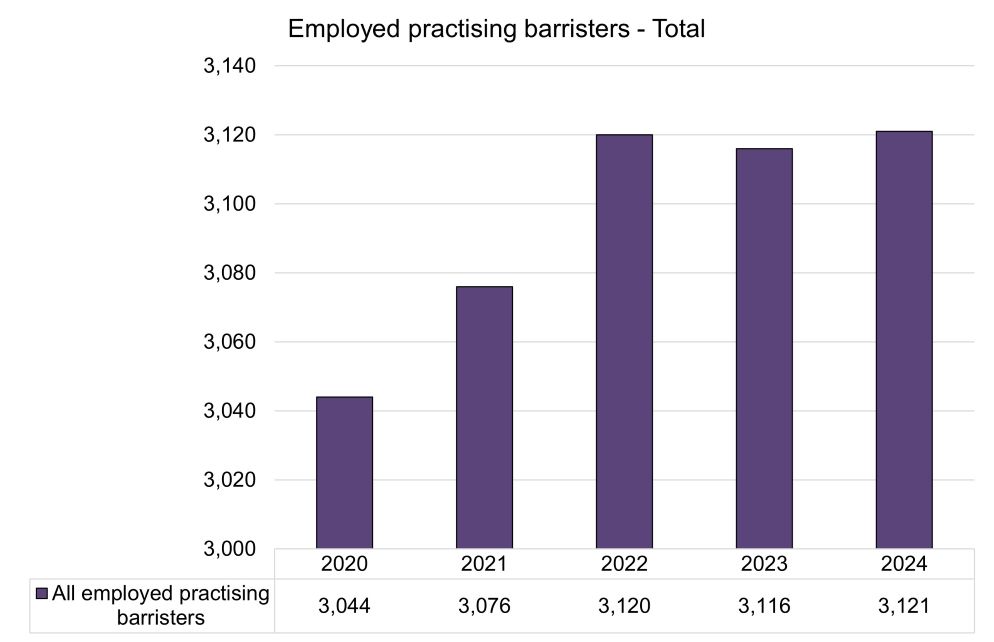
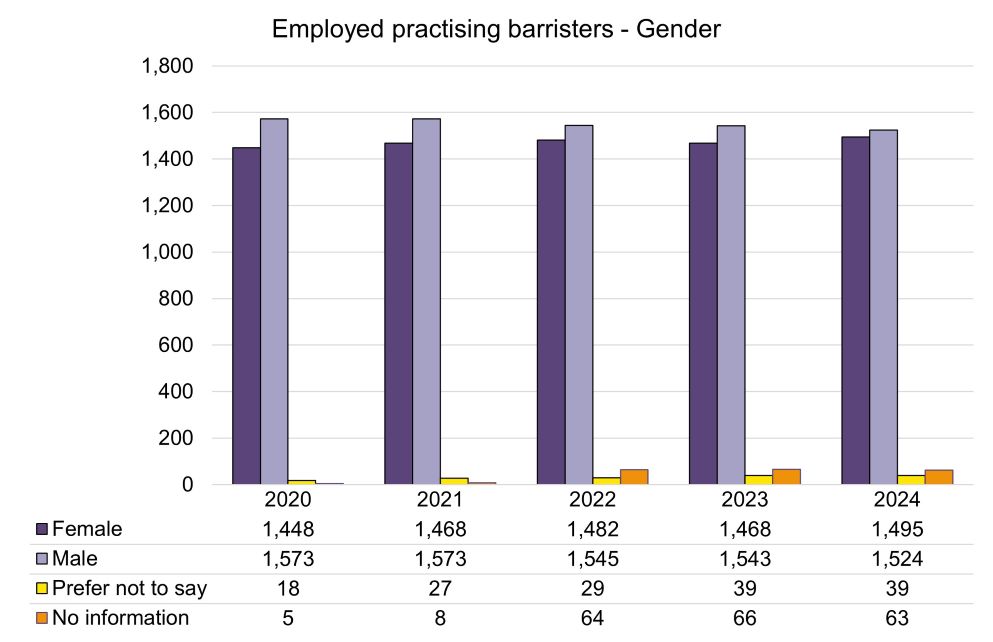
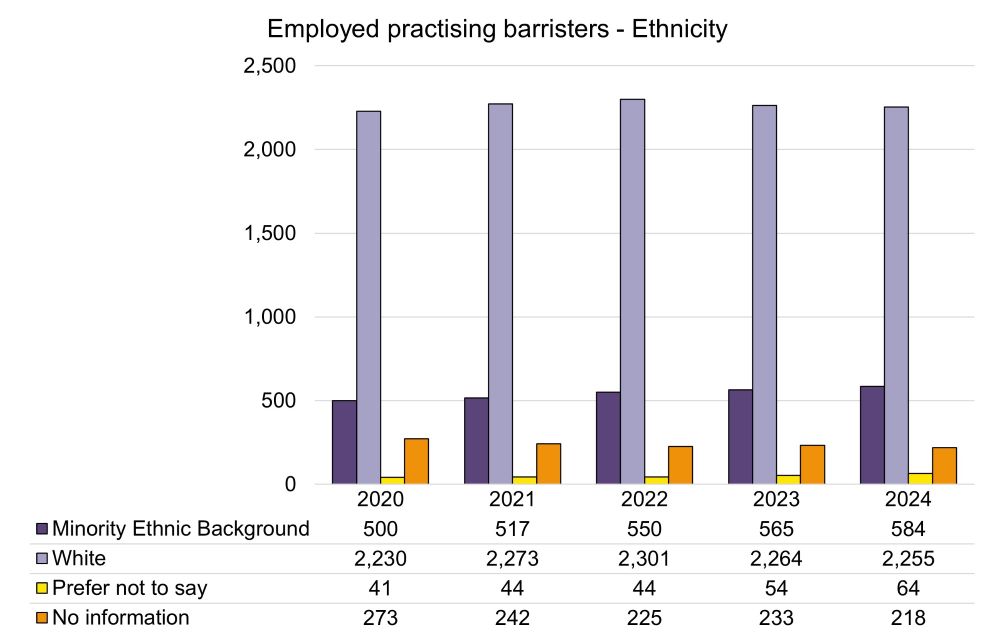
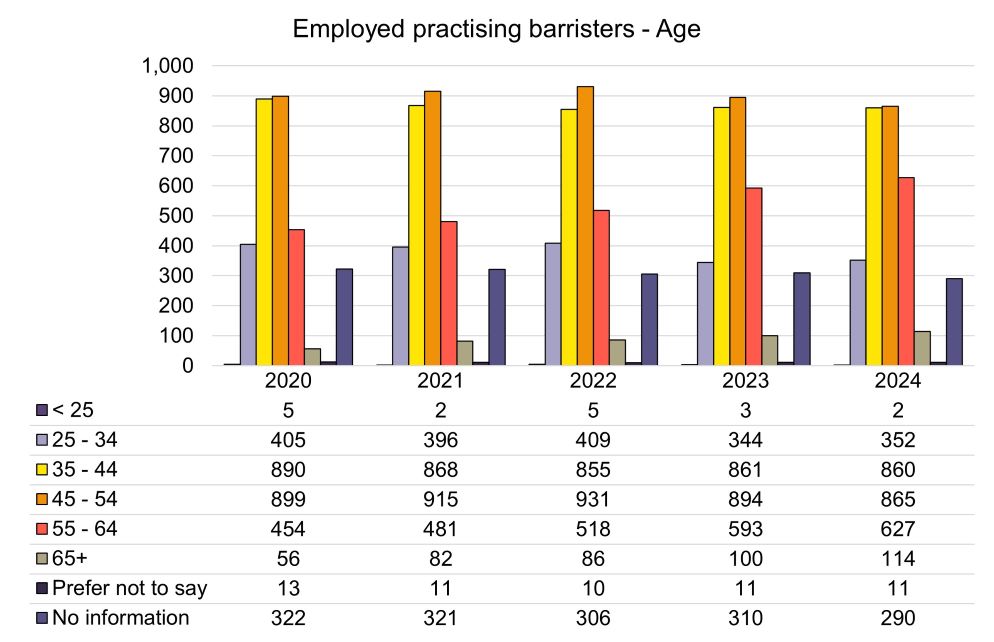
The Practising Bar at less than 5 years of Call
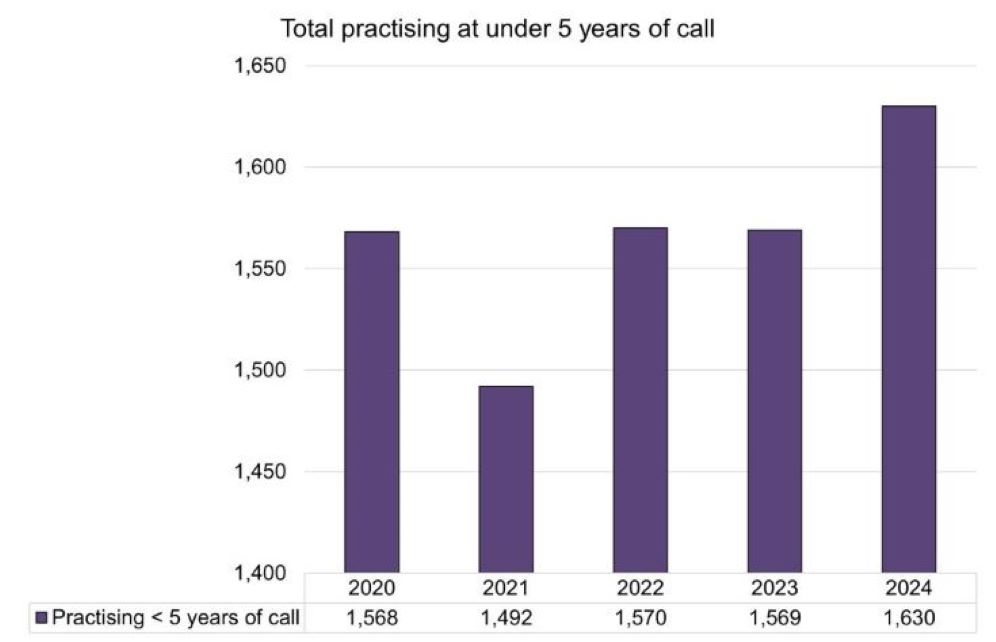
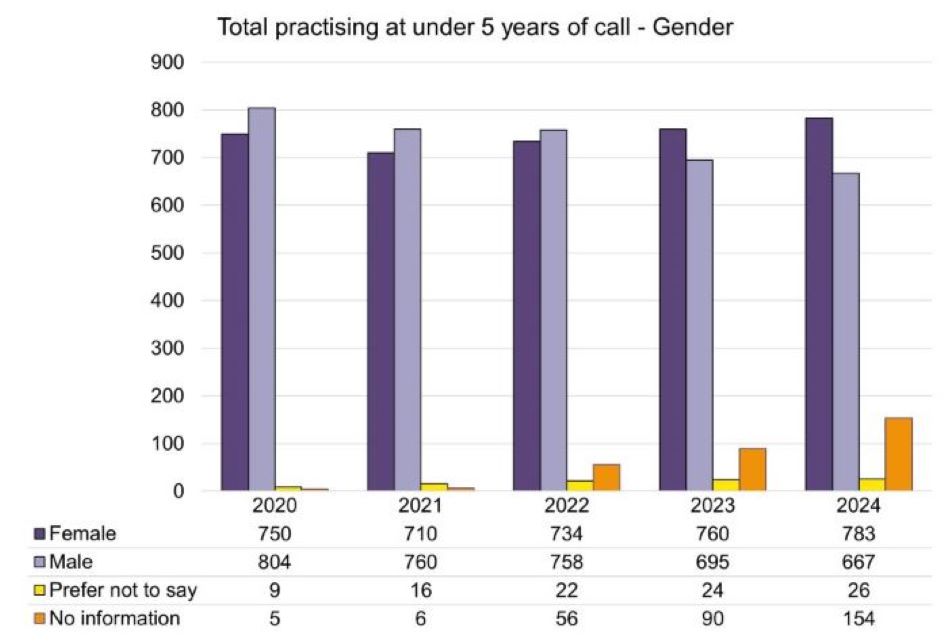
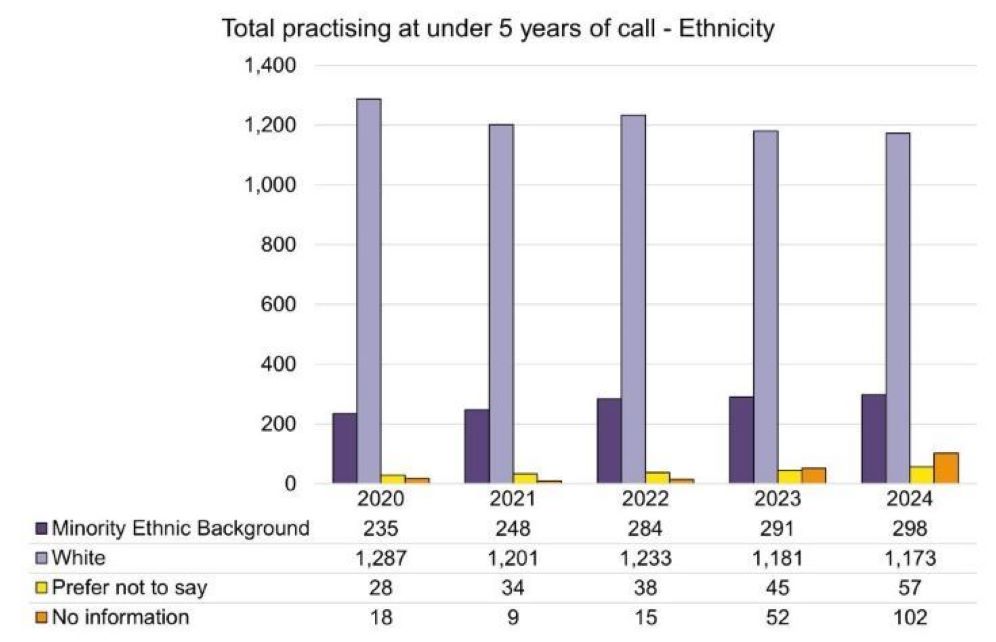
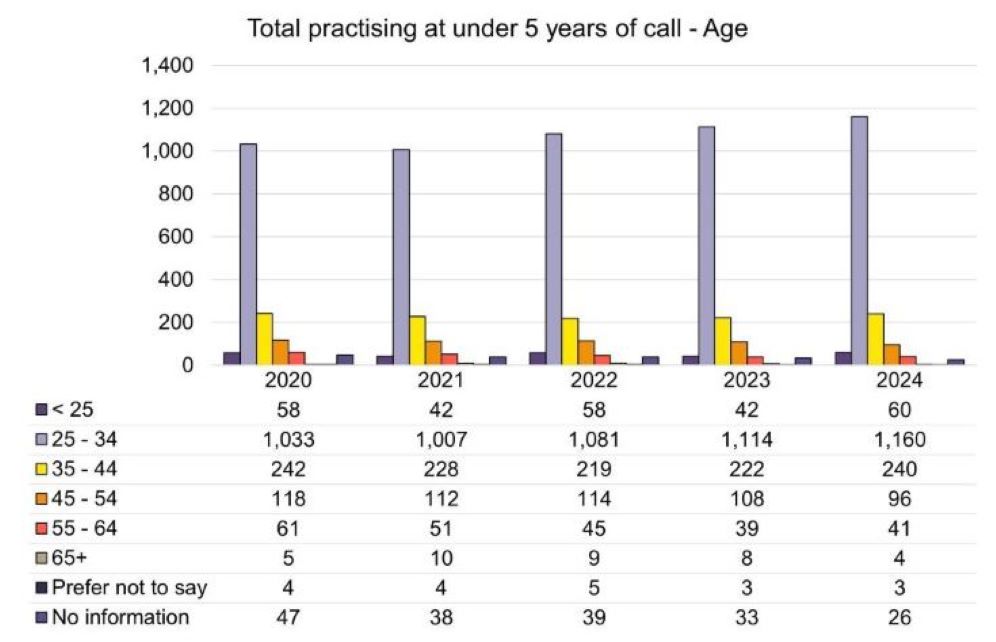
The Practising Bar at 15+ years of Call
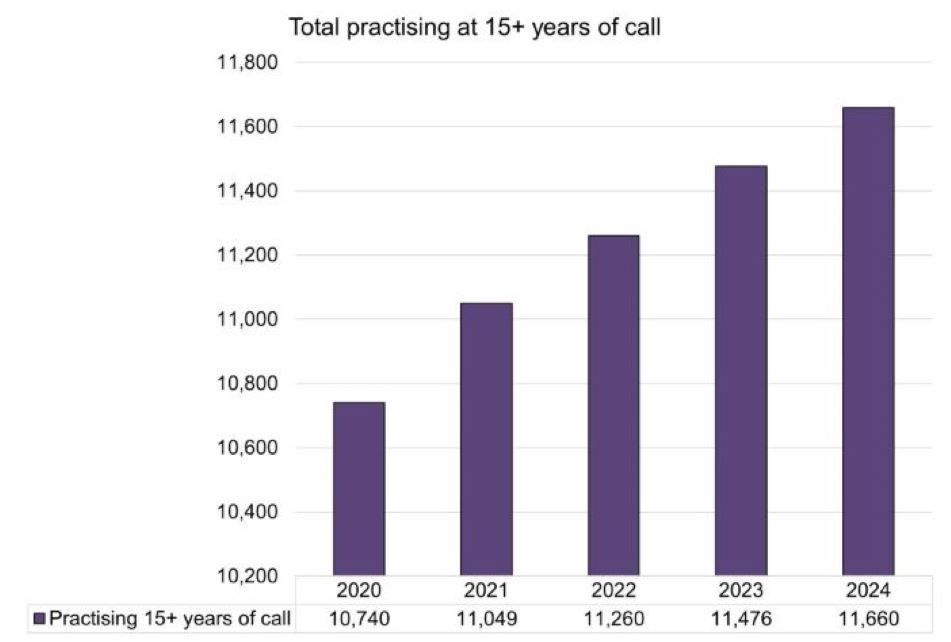

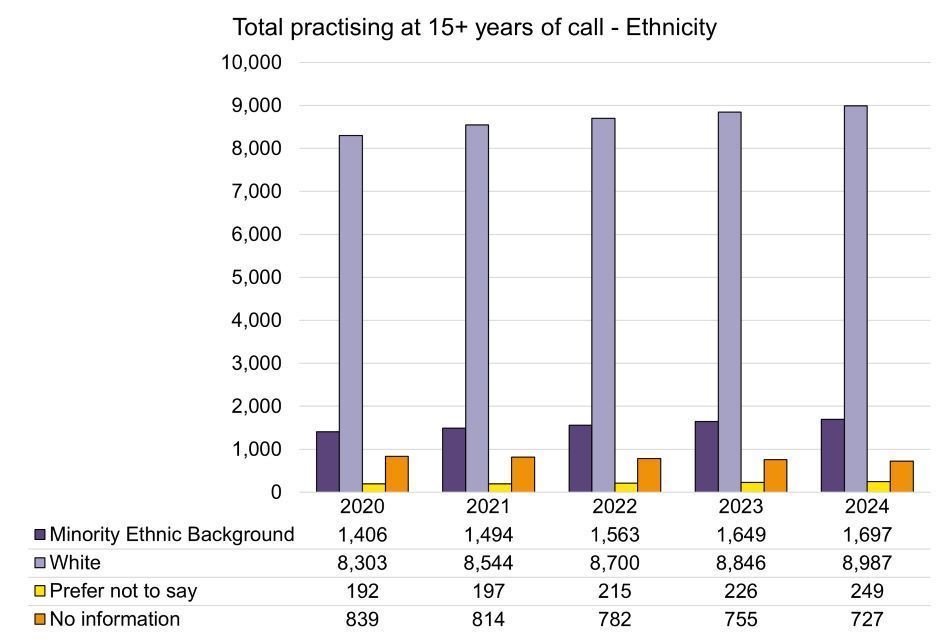
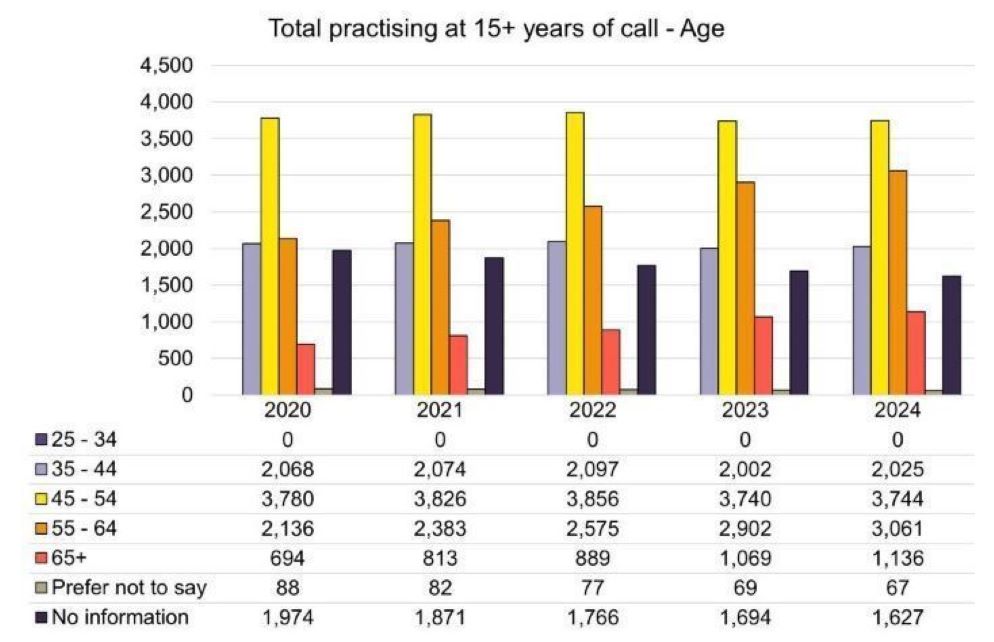
We publish annual data on diversity at the Bar which is available from our Regular Research publications page.
Caveats
* Please note that reporting mechanisms have changed over the past years. As a result of sourcing from various data streams and the implementation of more robust quality assurance structures some numbers may vary from previous publications.
** We gather diversity data for individual barristers via the "MyBar" online portal, as part of the Authorisation to Practise process, using a Legal Services Board-designed form. Provision of the data is voluntary because data protection laws dictate that people - in any profession - cannot be obliged to disclose equality and diversity data about themselves if they do not wish to do so.
Date of next update
February 2026
Source of data
This data is sourced from the Bar Standards Board Database.

